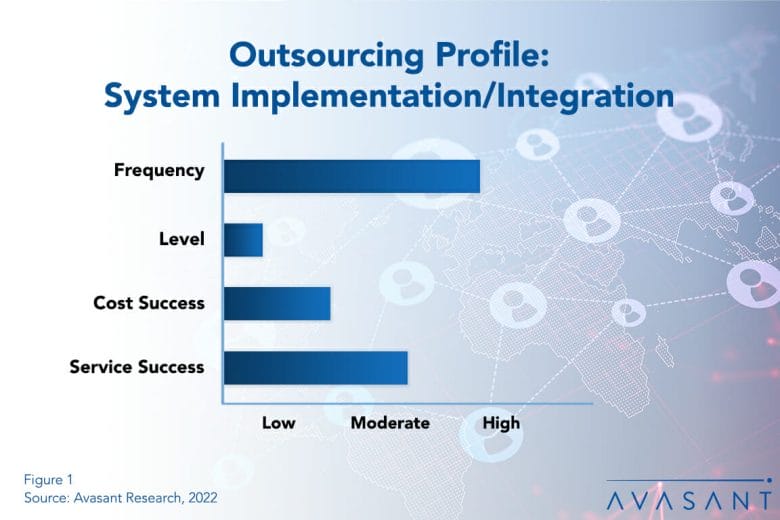Many outsourcing decisions are influenced by the need to save money. However, there are some instances where businesses are willing to pay extra for the expertise or operational flexibility that a service provider can deliver. And in the case of system implementation and integration, the primary motivation is to ensure project success. Real expertise is needed to configure new enterprise systems to align with the business, convert legacy data, and integrate them with external and internal systems. But few organizations today have the skills, experience, and desire to do it with in-house personnel alone. And a good number of those outsourcing this function, 78%, say they have the same or better service than if they completed it in-house.
Still, there is some room for improvement. As shown in Figure 1 from our full report, System Implementation/Integration Outsourcing Trends and Customer Experience, organizations that outsource system implementation/integration do not save money over doing all the work in-house, but they have moderate success in terms of service experience.

Many factors are driving the outsourcing of system implementation and integration, and some historical perspective is in order here. At the beginning of the software age, businesses built their own applications, whether general ledger, purchasing, payroll, or any number of enterprise systems. Even into the early 1980s, most IT organizations used few commercial business applications.
But with the dawn of packaged enterprise software, things changed. Diverse systems from different commercial developers needed to talk to each other, and help from experts became important. In the current environment, some large companies augment their IT team with implementation/integration specialists who do it all. But hiring in-house integration specialists is exceedingly rare. System implementation/integration is getting more complicated with new technologies and methodologies. Thus, most enterprises hire SI firms, which offer specialists who are (hopefully) well versed in the systems a company is seeking to implement and integrate.
“Very few organizations have the resources to take on a major system implementation/integration project by themselves,” said Tracell Frederick, research analyst/editor for Avasant Research, based in Los Angeles. “Outsourcing the effort can be expensive, but if it ensures success, it can be money well spent.”
Our full report examines adoption trends and customer experience with system implementation/integration outsourcing. We report on the percentage of organizations outsourcing it (frequency) and the average amount of work outsourced (level). We also present data on the cost and service experience and how these trends differ by organization size and sector. We conclude with guidelines to consider when outsourcing system implementation/integration.
This Research Byte is a brief overview of our study, System Implementation/Integration Outsourcing Trends and Customer Experience. The full report is available at no charge for subscribers, or it may be purchased by non-clients directly from our website.





